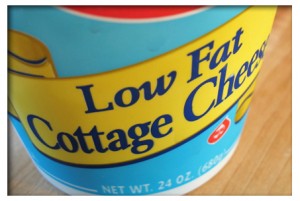
In the 40’s and 50’s a University of Minnesota researcher, Ancel Keys, postulated that the apparent epidemic of heart attacks in middle-aged American men was related to their mode of life and specifically the consumption of fat. Keys is famous for two contributions to nutritional science. The first is the invention of the military field ration known as the “K” ration. The second and most infamous is a study called the Seven Country Study. In it he concluded that countries where fat consumption was highest, they also had the highest rate of heart disease. It all seemed pretty open and shut. Except for one little detail that Dr. Keys had left out. When he started the study he had begun with 21 countries. But, when he looked at the data from this large cross section, it just wasn’t very convincing. So he removed the countries that detracted from his idea. The SEVEN country study was born.
Fast forward 20 years to the mid 1970’s and the science of low fat/high carb diets had become mainstream. In fact, it is now nearly impossible to find healthy fat in the middle of a grocery store these days. One of the sad results of the fear of fat is that people began eating more and more carbs and sugar in it’s absence. The increased consumption of grains and sugars has contributed directly to the diabetes and obesity crisis. There are a variety of factors for this.
Just think of that classic bag of addictive chips. Your body tends to tell your brain that carbs taste like…MORE! Whereas fats flip the full button and you can stop eating. For one thing protein and fat tend to satiate faster. In other words you tend to feel full more quickly when you eat protein and fat.
The main culprit in fat storage is the hormone insulin. Insulin is a bit of a “klepto”. It likes to gather up sugar and store it as fat. A higher production of insulin, not only means more fat is being stored, it also means less fat will be burned. Insulin release is triggered by carbs, but it can also be triggered by protein (though not to the same degree). When someone is on the S.A.D. diet blood glucose is available in overabundance and the body shifts to sugar-burning rather than fat-burning. The result is more stored fat and less fat-burning. On the other hand, most fats DO NOT trigger the release of insulin.
Fat storage isn’t the only down side of a Low Fat/High Carb diet, here are a few other known side effects:
Depression
Heart Disease
High Cholesterol
Increased Cancer Risk
Overeating
Poor Vitamin Absorption
Many of these risks can be lethal. The fact that eating fat doesn’t make you fat is a concept that is hard for many of us to grasp. Thanks to Dr. Keys and others we have had the mantra fat is bad drilled into our collective consciousness for the last 50 years. To clarify: Not all fat is good. Good fat occurs naturally in meat, nuts and seeds. Whereas oil created in a lab, like trans fat is down right poisonous. This is true of most nutrients, the less processing the better. Like our friends at Food Truth are always saying…”Eat Real Food.” Natural fat is our ally.
Lathe Poland is one of the creators of Carb-Loaded a documentary film that examines the causes of the diabetes epidemic.

